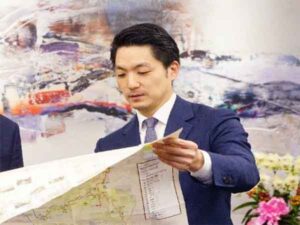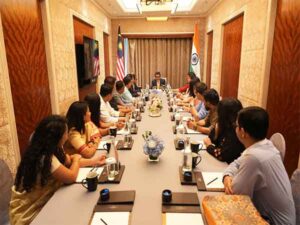China denies UN experts’ claim of forcibly separating Tibetan children from parents
Lhasa [Tibet], March 15 (ANI): China has denied UN Special Rapporteurs’ claim that it has separated one million Tibetan children from their families and has forcibly placed them in boarding schools as part of its attempt to assimilate them religiously, culturally, and linguistically into the dominant Han Chinese culture, Voices Against Autocracy (VAA) reported.
The Han Chinese or Han people are an East Asian ethnic group native to China. China’s Foreign Ministry Spokesperson Mao Ning during a regular press briefing last week said: “This is certainly not true and apparently just another allegation meant to mislead the public about China and smear China’s image. As is commonly seen around the world, there are boarding schools across Chinese provinces and regions to meet the needs of the local students.”
“These schools provide accommodation, catering, and other boarding services. They are not closed facilities and still less run in military style,” he said. China has come under huge attack from UN experts for its alleged move to forcibly assimilate the Tibetan identity into the Han culture. This has come even as China faces a tough time in denying the truth on human rights violations of Uyghurs, Muslim ethnic groups living in the north-western region of Xinjiang, according to VAA.
A press statement of the Human Rights Council of the United Nations (UN) released on February 6 in Geneva came out with a revelation that the Chinese government is running a chain of residential schools where about a million Tibetan children are forcibly lodged in order to wipe out their Tibetan cultural identity and to brainwash them into Chinese Han culture.
The three experts Fernand de Varennes, Farida Shaheed and Alexandra Xanthaki, said in their joint statement, “We are very disturbed that in recent years the residential school system for Tibetan children appears to act as a mandatory large-scale programme intended to assimilate Tibetans into majority Han culture, contrary to international human rights standards.” China’s Foreign Ministry Spokesperson in response said: “In the case of China’s Tibet, this is a region of high altitude and highly scattered population in many areas.
Children from herding families, in particular, have to travel long distances to get to school. If schools were to be built in every place the students live, it would be very difficult to ensure adequate teachers and quality of teaching in each school.”
But the UN experts, according to VAA, said there is more to something than meets the eye: the study material for Tibetan children and the environment are built around Han culture; lessons are conducted solely in Mandarin Chinese (Putonghua) with scant reference to Tibetan history, religion, and “certainly not exiled spiritual leader the Dalai Lama.”






